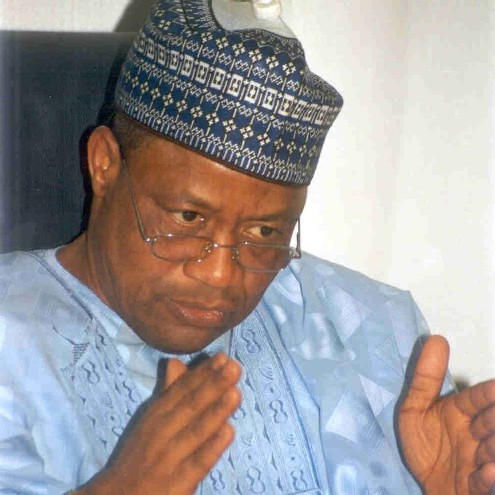The emergence of the All Progressive Congress (APC) has received some backing from former military president, General Ibrahim Babangida (rtd) who said it was a welcome development in Nigeria’s political system as it would serve as a strong opposition to the ruling Peoples’ Democratic Party, PDP.
He made this statement while fielding questions from journalists at his hilltop mansion in Minna, Niger State, saying that as a strong advocate of two political parties for the country, the emerging scenario would surely vindicate him on his stand for two political party system which he said was the only way out for the country politically.
“I have been a very good advocate of two party system for the country since I was the president. When I said we need only two parties some years back, they said I am a soldier and I should shut up but now, many are seeing relevance in my agitation.
“I am happy with the merger talk that is going on. It is a welcome political development in our political experience and if it succeeds, it will surely vindicate me and move the country on politically.”
The former military president criticized the nation’s political leadership so far said most politicians in the country were concerned about the votes they garnered from the electorate during elections but have failed to serve them more appropriately after winning the elections.
“It is unfortunate that the political elite have failed to enlighten the ordinary man and carry them along. Nobody is talking about educating the ordinary man because they are only interested in their votes and soon forget them after getting to power.
“The only thing we are busy doing is wasting our energy in fighting over who becomes the chairman of this or that and until we carry the people along and serve them diligently, we will have a long way to go in this country,” he said.
When asked if he was comfortable with the comments of former American president, Bill Clinton, accusing the Federal Government of mismanaging the country’s resources, the former president said it was what the foreigners read from the home-based journalists that they rely and comment on.
“You don’t need a foreigner to tell you this. You write it yourself and they read it and so, what is the problem with the comment. I am comfortable with the comment,” Babangida said.

